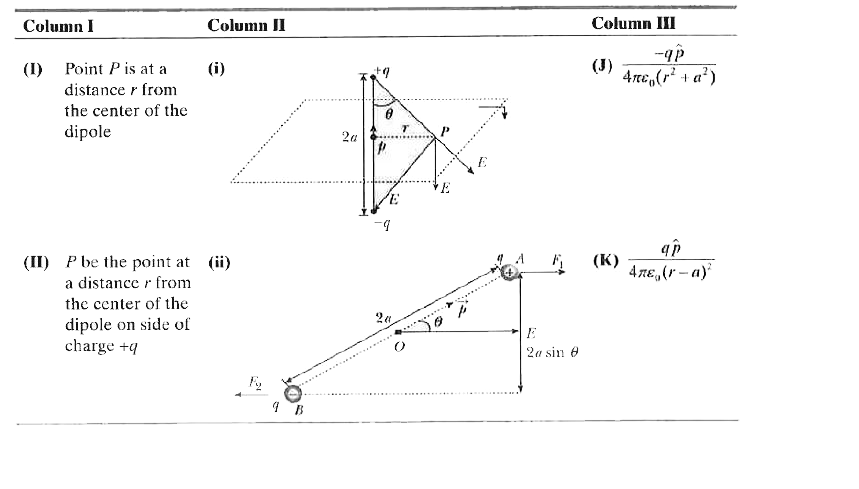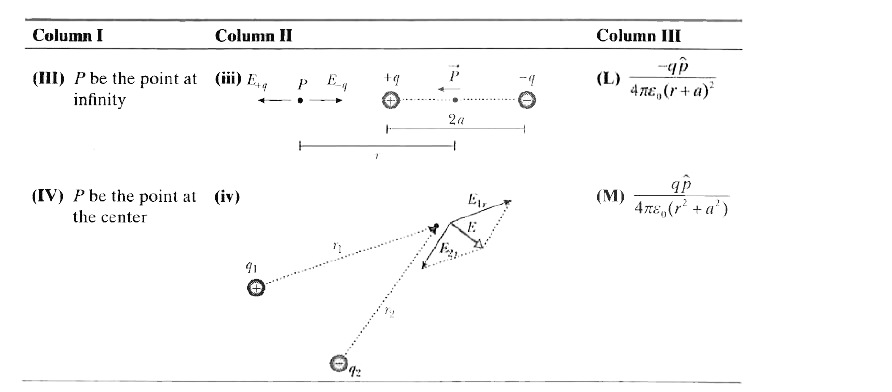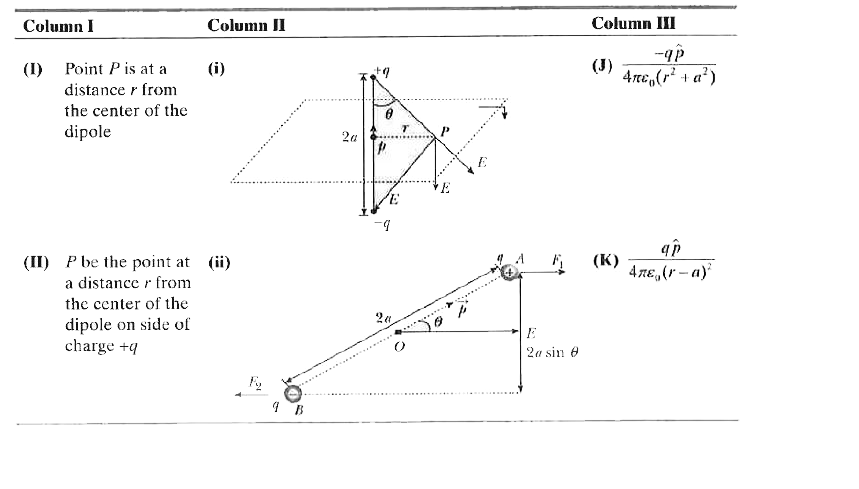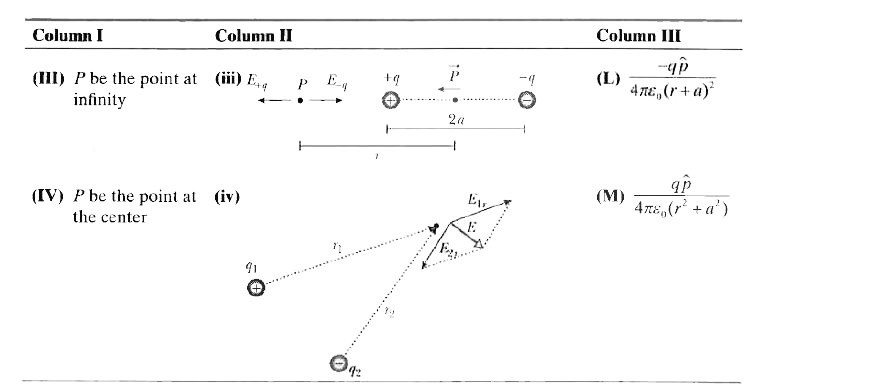An electric dipole is the combination of two equal and opposite charges q and -q, respectively, separated by distance 2a. There are different points where we can find electric field due to the electric dipole. In the given table, column 1 shows different positions of point where we have to find electric field due to dipole, column 2 shows the figure of dipole with different positions of point where we have to find the electric field and column 3 shows the value or final formula of the electric field of different positions of the point.
When point P lies on the equatorial plan of the electric dipole, electric field due to -q is ?


A
(I) (i) (J)
B
(I) (i) (M)
C
(III)(iii) (J)
D
(I) (i) (K)
Text Solution
The correct Answer is:A
|
Topper's Solved these Questions
- ELECTRIC CHARGES AND FIELDSBOOK - RESNICK AND HALLIDAYCHAPTER - ELECTRIC CHARGES AND FIELDSEXERCISE - Practice Questions (Integer Type )
3 Videos
- ELECTRIC CHARGES AND FIELDSBOOK - RESNICK AND HALLIDAYCHAPTER - ELECTRIC CHARGES AND FIELDSEXERCISE - Practice Questions (Linked Comprehension)
5 Videos
- ELASTICITYBOOK - RESNICK AND HALLIDAYCHAPTER - ELASTICITYEXERCISE - PRACTICE QUESTIONS (Integer Type)
3 Videos
- ELECTRIC POTENTIALBOOK - RESNICK AND HALLIDAYCHAPTER - ELECTRIC POTENTIALEXERCISE - (PRACTICE QUESTIONS) Integer Type
1 Videos
Similar Questions
Knowledge Check
An electric dipole is the combination of two equal and opposite charges q and -q, respectively, separated by distance 2a. There are different points where we can find electric field due to the electric dipole. In the given table, column 1 shows different positions of point where we have to find electric field due to dipole, column 2 shows the figure of dipole with different positions of point where we have to find the electric field and column 3 shows the value or final formula of the electric field of different positions of the point.
When point P lies on the axis of the electric dipole, electric field due to -q is ?

 A(III) (ii) (L)B(II) (iii) (L)C(II) (iii) (J)D(I) (i) (K)
A(III) (ii) (L)B(II) (iii) (L)C(II) (iii) (J)D(I) (i) (K)Electric field due to an electric dipole is
Aspherically symmetricBcylindrical symmetricCasymmetricDnone of the aboveElectric field due to an electric dipole is
Aspherically symmetricBcylindrical symmetricCasymmetricDnone of the above
Electric Field Due to Dipole|| Electric Potential Due to Dipole
View SolutionElectric Field Due To An Electric Dipole At A Point On The Axial Line
View SolutionThe distance of the field point, on the equatorial plane of a small electric dipole, is halved. By what factor will the electric field, due to the dipole, change?
View SolutionElectric Field Due to Electric Dipoles || Potential Due to Dipole || Examples on Dipoles
View SolutionElectric field intensity (E) due to an electric dipole varies with distance (r) from the point of the center of dipole as :
View Solution
